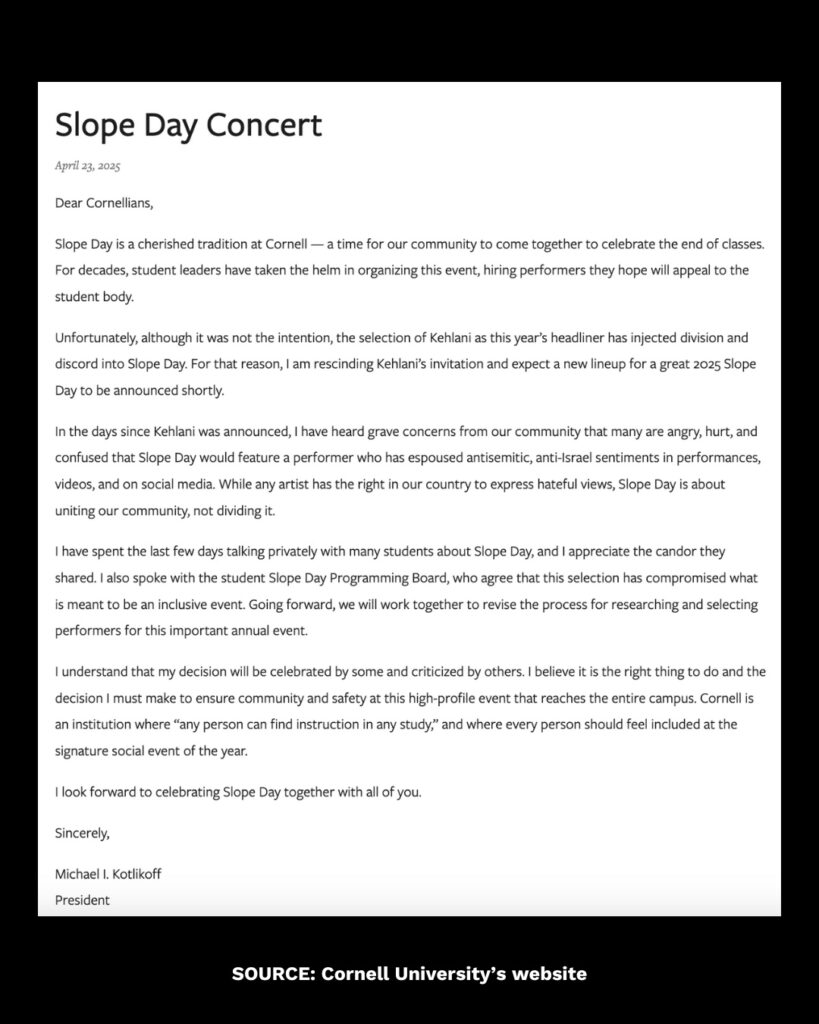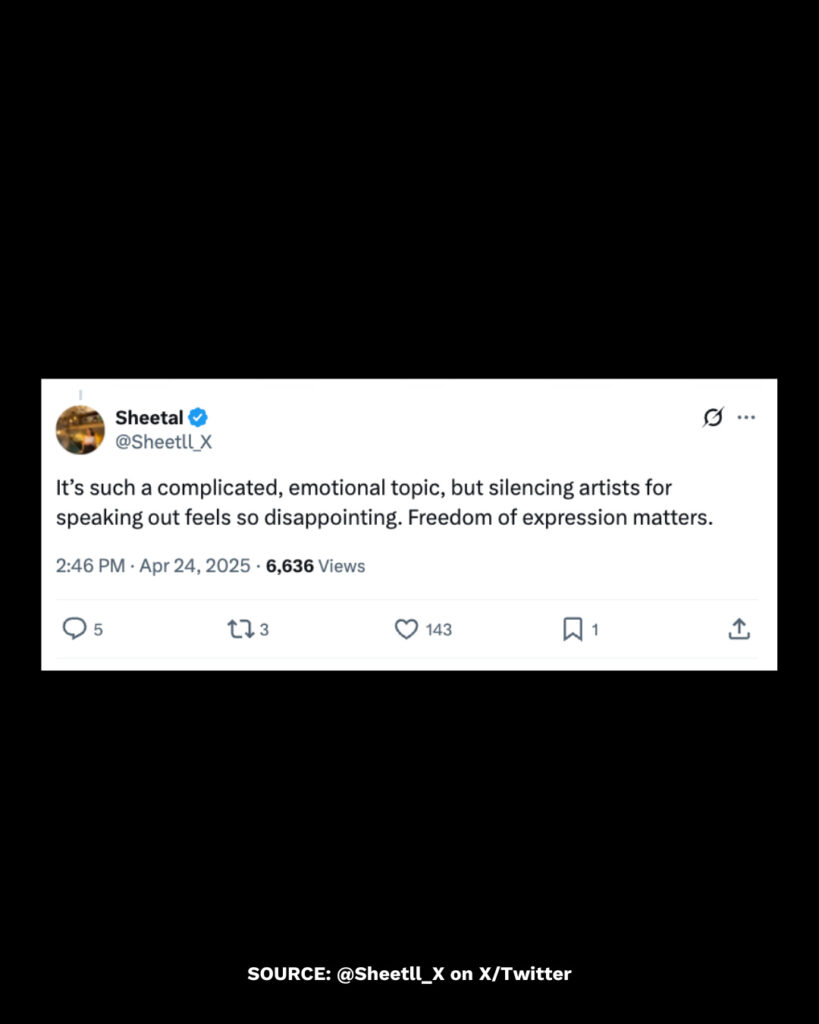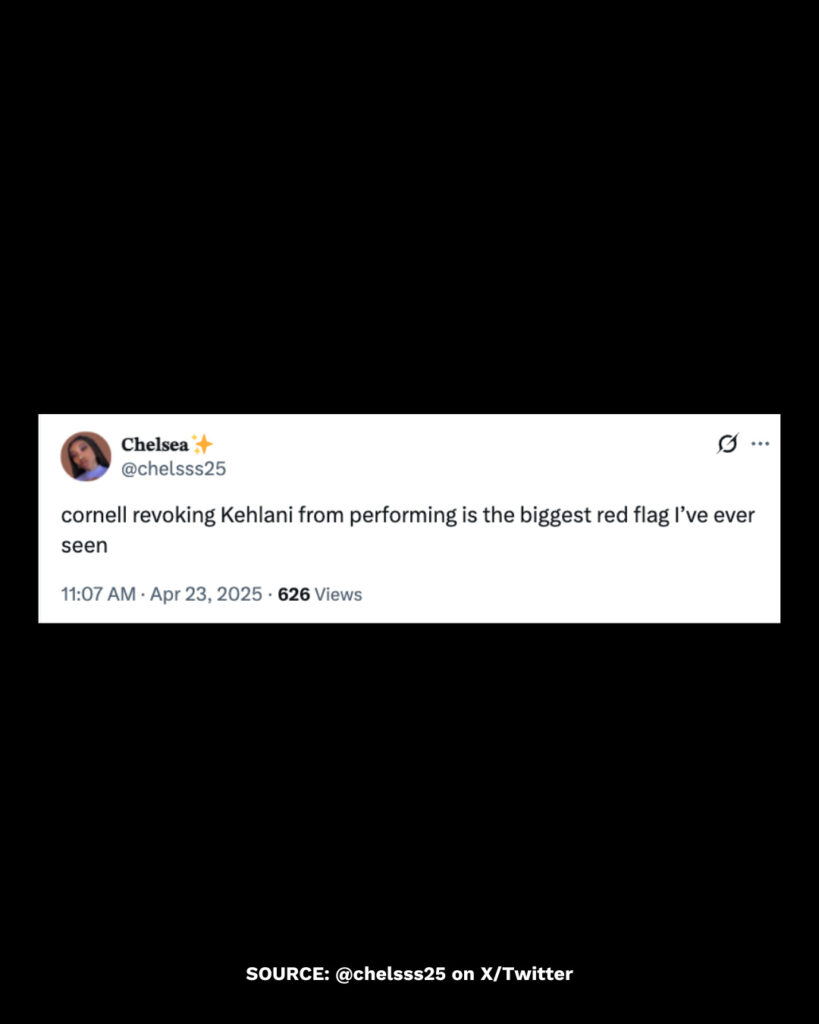Cornell University has revoked R&B singer Kehlani’s invitation to headline its annual Slope Day celebration, citing concerns over the artist’s pro-Palestinian views and what the administration described as her “divisive” rhetoric.
The decision, made public via an open letter from Cornell President Michael I. Kotlikoff, followed swift backlash from campus groups and national watchdog organizations.
Kehlani, who has been outspoken in calling for a ceasefire in Gaza and critical of Israel’s military actions, was announced as Slope Day’s featured performer just two weeks before being dropped.

The sudden reversal reflects mounting tensions on U.S. college campuses amid the ongoing war in Gaza and heightened scrutiny over perceived antisemitism.
“In the days since Kehlani was announced, I have heard grave concerns from our community,” Kotlikoff wrote. “Slope Day is about uniting our community, not dividing it.”
According to Kotlikoff, Kehlani’s past statements—including sharing a map that eliminated the state of Israel and a video that began with “Long live the Intifada”—sparked concerns among Jewish students and community members.
Activist groups such as StopAntisemitism accused the Grammy-nominated artist of promoting hate speech and antisemitism.
In response to her selection, Cornellians for Israel launched a petition and threatened to stage a counter-concert, saying her performance would alienate Jewish students. Some also organized a GoFundMe campaign to support alternative programming.

Although Kotlikoff initially stated that it was “too late” to rescind the invitation, pressure from students and faculty escalated. Eventually, he made the call to cancel the performance, acknowledging the move would face criticism but maintaining it was the “right thing to do.”
Kehlani has not publicly commented on the cancellation as of press time.
Critics of the university’s decision argue that the cancellation raises significant First Amendment concerns and may contribute to the silencing of pro-Palestinian voices in higher education. Others say the university should have vetted performers more thoroughly before extending invitations.
Cornell law professor William Jacobson, who also leads the civil rights nonprofit EqualProtect.org, commented that “the performer was at odds with the entire purpose of the event and never should have been selected.” He added, “If anti-Israel activists want Kehlani to perform, they should do it on their own dime.”

Amanda Silberstein, president of Cornell’s Chabad Center, expressed relief over the cancellation.
“Slope Day should be a celebration that brings our campus together — not an event that isolates or alienates students,” she said.
The controversy highlights the balancing act universities face between upholding free speech and maintaining campus unity in the face of polarizing global conflicts. It also underscores the growing pressure on institutions to respond to activism—on all sides—related to the Israel-Palestine conflict.
As student leaders, advocacy groups, and faculty continue to debate the line between expression and incitement, one thing is clear: the campus concert stage is now a battleground for the broader culture wars playing out across America.
